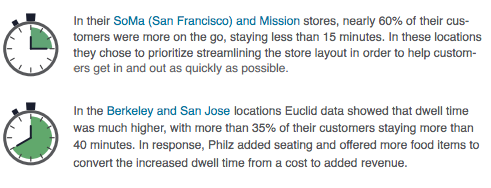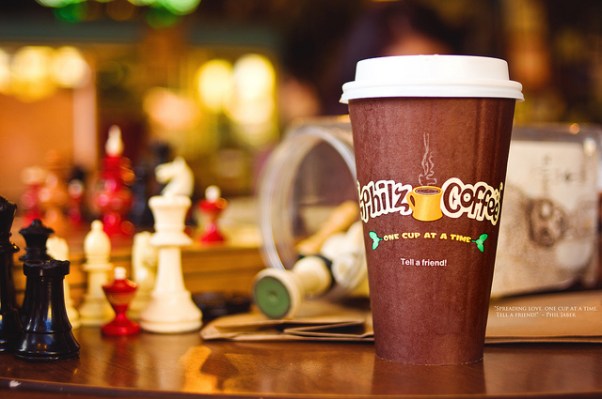In the conflict between advocates of consumer privacy and those promoting the benefits of wide-reaching data collection, it’s not often we hear about the former getting a win. Yet it appears that’s exactly what happened in San Francisco last night. Philz Coffee, the Bay Area coffee shop mainstay, announced that it would no longer collect the information of customers and passersby over Wi-Fi using technology from Euclid Analytics.
Some Philz customers had expressed concerns about the customer analytics being deployed in its locations in the Bay Area. If you had Wi-Fi enabled on your phone or tablet as you either walked past or into a Philz, the cafe, using Euclid’s analytics, would be able to see that device as unique from others in the vicinity. Once they knew that, they could start drawing some conclusions based on other data, like how long you stay near or in a store or even where you stand.
TechCrunch’s Sarah Perez explained early last year how the technology works:
“Traditionally, retailers have used everything from basic door clickers to optical solutions like beams above a door or video cameras to track their customers’ comings and goings. But Euclid had a different idea – it could passively detect customers’ smartphones with Wi-Fi enabled and collect their phones’ MAC addresses. Because MAC addresses are unique to each device (although not personally identifiable info), Euclid hashes the MAC address before storing the number on its servers. It also contractually requires that its customers place signage in their stores informing customers of opt-out procedures.”
The biggest privacy concern involved with the collection of this information is that unique device IDs might be tied to real or online identities, allowing companies to have a greater idea of what people spend their time doing and thus better target them with ads.
That’s a legitimate concern for many offerings in this space. D-Link, for instance, offers a router that makes it easy for restaurants and small businesses to offer free Wi-Fi by requiring patrons to check in using their Facebook accounts.
According to a release from Euclid (PDF), their analytics platform anonymized data, simply allowing its customers to improve their offerings by looking at the general behavior at different locations:

Euclid CEO Will Smith said the following in a prepared statement quoted by Max Cherney at The San Francisco Appeal:
“We’re shoppers too, so we wanted to create a powerful product that helps retailers optimize the shopping experience, while at the same time could be proud of as consumers. We’ve built our technology from the ground up with privacy in the fore-front, and none of the information we collect can ever be traced back to an individual.”
That Philz was so quick to drop Euclid should be a warning sign to those looking to enter the retail analytics space: It can’t be taken as a given that customers won’t reject moves to collect information just because data is anonymized or seamlessly collected behind the scenes.
